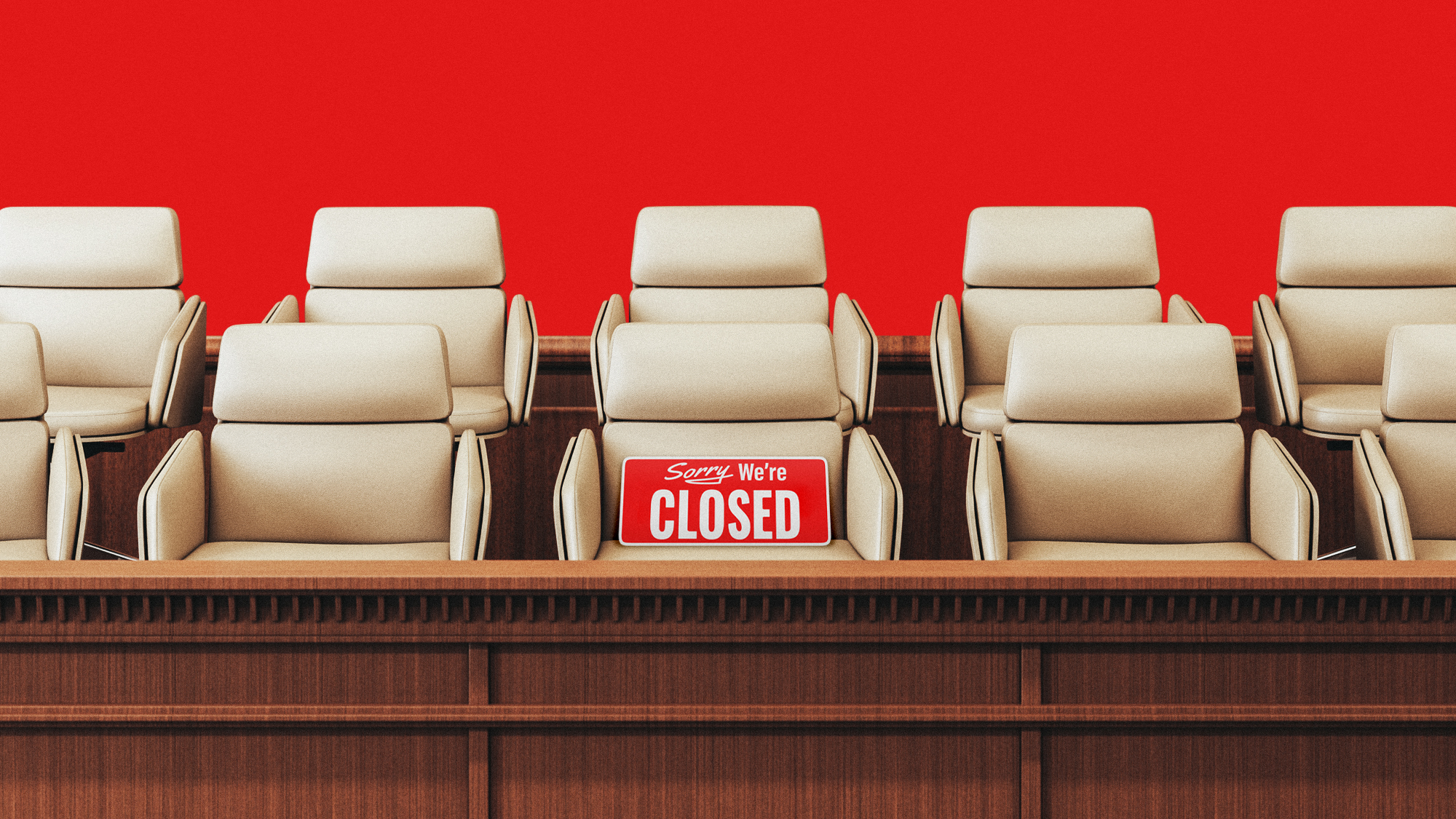Former South African President Jacob Zuma turns himself in to start 15-month prison term

A free daily email with the biggest news stories of the day – and the best features from TheWeek.com
You are now subscribed
Your newsletter sign-up was successful
Jacob Zuma, the South African liberation hero who served as president from 2009 to 2018, turned himself in to police early Thursday, right after a midnight deadline set by the Constitutional Court for his arrest on contempt of court charges. "President Zuma has decided to comply with the incarceration order," the Zuma Foundation tweeted as a convoy left Zuma's compound in his home province of KwaZulu-Natal. "He is on his way to hand himself into a Correctional Services Facility."
The Constitutional Court in late June ordered Zuma to spend 15 months in prison for refusing to testify in a judicial investigation of alleged widespread corruption during his presidency. Zuma's lawyers had filed a flurry of legal challenges to keep him out of prison, and hundreds of his supporters had gathered at his home, vowing to prevent police from arresting him — though they left on Sunday, The Associated Press notes.
Along with the corruption charges from his presidency, bolstered by damning testimony from former Cabinet officials and executives at state-owned companies, Zuma faces trial for separate allegations that he accepted bribes in an arms deal when he was deputy president in 1999, charges he denies but that have already sent his financial adviser to prison. Zuma also denies the corruption charges from his presidency.
The Week
Escape your echo chamber. Get the facts behind the news, plus analysis from multiple perspectives.

Sign up for The Week's Free Newsletters
From our morning news briefing to a weekly Good News Newsletter, get the best of The Week delivered directly to your inbox.
From our morning news briefing to a weekly Good News Newsletter, get the best of The Week delivered directly to your inbox.
Zuma, 79, spent 10 years in jail at the Robben Island prison that also held Nelson Mandela and other opponents of apartheid, the brutal white segregationist government that ruled South Africa for much of the 20th century. When Zuma was released in 1973, he left South Africa but continued his work with the African National Congress, the ruling party since South Africa's first democratic elections in 1994. Zuma was among the ANC officials who brokered the political settlement that ended apartheid.
"It is very disappointing to see a man who has done so much for the country, a liberation hero, now reduced to zero," Lesiba Teffo, lecturer in politics at the University of South Africa, tells AP. "This is a man who fought hard for the liberation of this country, but like many African leaders in our continent, he fell at the altar of money."
A free daily email with the biggest news stories of the day – and the best features from TheWeek.com
Peter has worked as a news and culture writer and editor at The Week since the site's launch in 2008. He covers politics, world affairs, religion and cultural currents. His journalism career began as a copy editor at a financial newswire and has included editorial positions at The New York Times Magazine, Facts on File, and Oregon State University.
-
 Lawmakers say Epstein files implicate 6 more men
Lawmakers say Epstein files implicate 6 more menSpeed Read The Trump department apparently blacked out the names of several people who should have been identified
-
 Maxwell pleads 5th, offers Epstein answers for pardon
Maxwell pleads 5th, offers Epstein answers for pardonSpeed Read She offered to talk only if she first received a pardon from President Donald Trump
-
 Political cartoons for February 10
Political cartoons for February 10Cartoons Tuesday's political cartoons include halftime hate, the America First Games, and Cupid's woe
-
 The countries around the world without jury trials
The countries around the world without jury trialsThe Explainer Legal systems in much of continental Europe and Asia do not rely on randomly selected members of the public
-
 ABC News to pay $15M in Trump defamation suit
ABC News to pay $15M in Trump defamation suitSpeed Read The lawsuit stemmed from George Stephanopoulos' on-air assertion that Trump was found liable for raping writer E. Jean Carroll
-
 Judge blocks Louisiana 10 Commandments law
Judge blocks Louisiana 10 Commandments lawSpeed Read U.S. District Judge John deGravelles ruled that a law ordering schools to display the Ten Commandments in classrooms was unconstitutional
-
 ATF finalizes rule to close 'gun show loophole'
ATF finalizes rule to close 'gun show loophole'Speed Read Biden moves to expand background checks for gun buyers
-
 Hong Kong passes tough new security law
Hong Kong passes tough new security lawSpeed Read It will allow the government to further suppress all forms of dissent
-
 France enshrines abortion rights in constitution
France enshrines abortion rights in constitutionspeed read It became the first country to make abortion a constitutional right
-
 Texas executes man despite contested evidence
Texas executes man despite contested evidenceSpeed Read Texas rejected calls for a rehearing of Ivan Cantu's case amid recanted testimony and allegations of suppressed exculpatory evidence
-
 Supreme Court wary of state social media regulations
Supreme Court wary of state social media regulationsSpeed Read A majority of justices appeared skeptical that Texas and Florida were lawfully protecting the free speech rights of users
